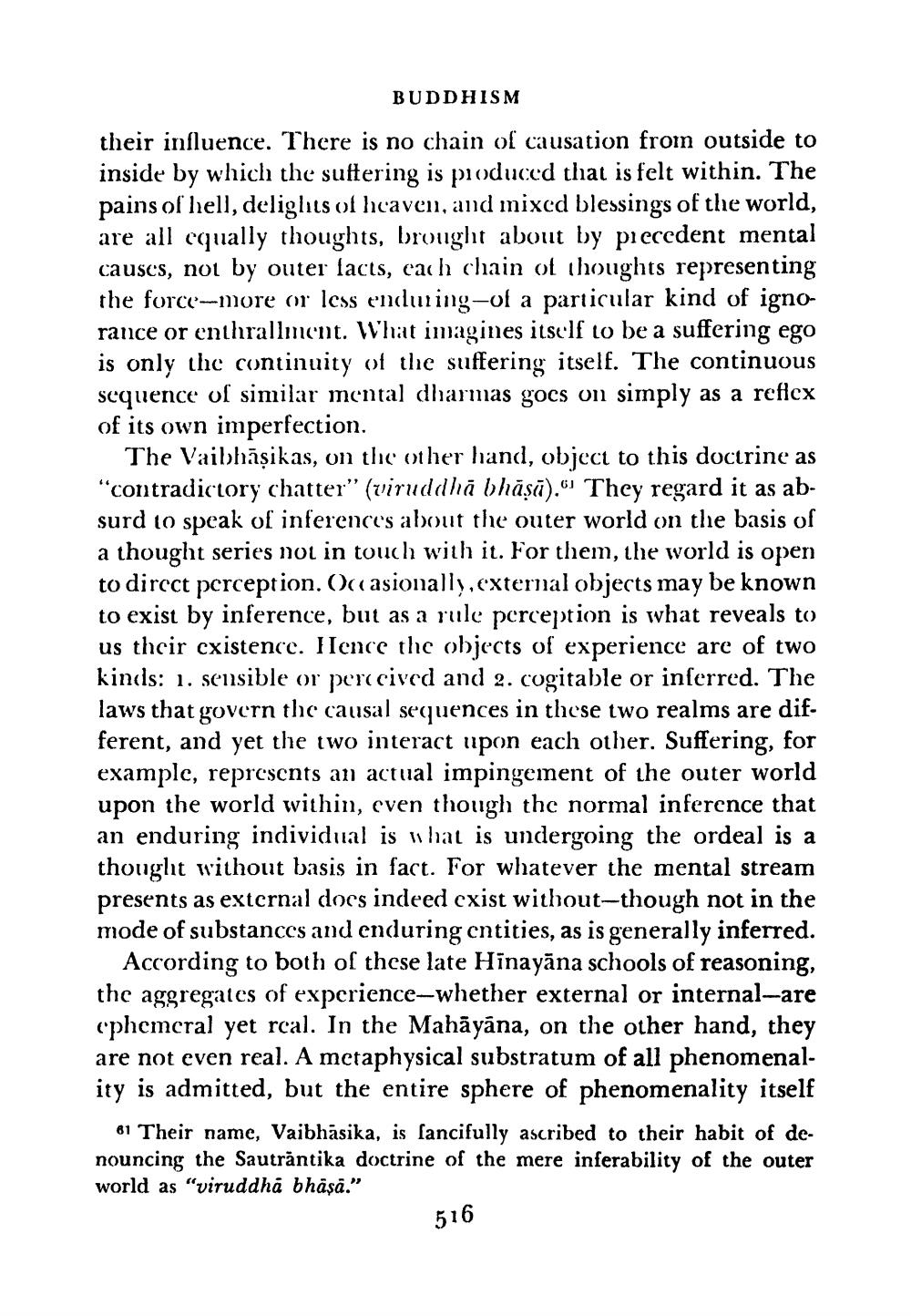________________
BUDDHISM
their influence. There is no chain of causation from outside to inside by which the suffering is produced that is felt within. The pains of hell, delighits of hcaven, and mixed blessings of the world, are all cqually thoughts, brought about by piecedent mental causcs, not by outer facts, cach chain of thoughts representing the force-more or less enduring-of a particular kind of ignorance or enthrallment. What imagines itself to be a suffering ego is only the continuity of the suffering itself. The continuous sequence of similar mental dharmas gocs on simply as a reflex of its own imperfection.
The Vaibhāșikas, on the other hand, object to this doctrine as "contradictory chatter” (viruddhā bhāṣā)." They regard it as absurd to speak of inferences about the outer world on the basis of a thought series not in touch with it. For them, the world is open to direct perception. Occasionally, external objects may be known to exist by inference, but as a rule perception is what reveals to us their cxistence. Hence the objects of experience are of two kinds: 1. sensible or perceived and 2. cogitable or inferred. The laws that govern the causal sequences in these two realms are dif. ferent, and yet the two interact upon each other. Suffering, for example, represents an actual impingement of the outer world upon the world within, even though the normal inference that an enduring individual is what is undergoing the ordeal is a thought without basis in fact. For whatever the mental stream presents as external docs indeed exist without-though not in the mode of substances and enduring entities, as is generally inferred.
According to both of these late Hinayāna schools of reasoning, the aggregates of experience-whether external or internal-are cphemeral yet rcal. In the Mahāyāna, on the other hand, they are not even real. A metaphysical substratum of all phenomenality is admitted, but the entire sphere of phenomenality itself
61 Their name, Vaibhāsika, is fancifully ascribed to their habit of denouncing the Sauträntika doctrine of the mere inferability of the outer world as "viruddhá bhäşā."
516




